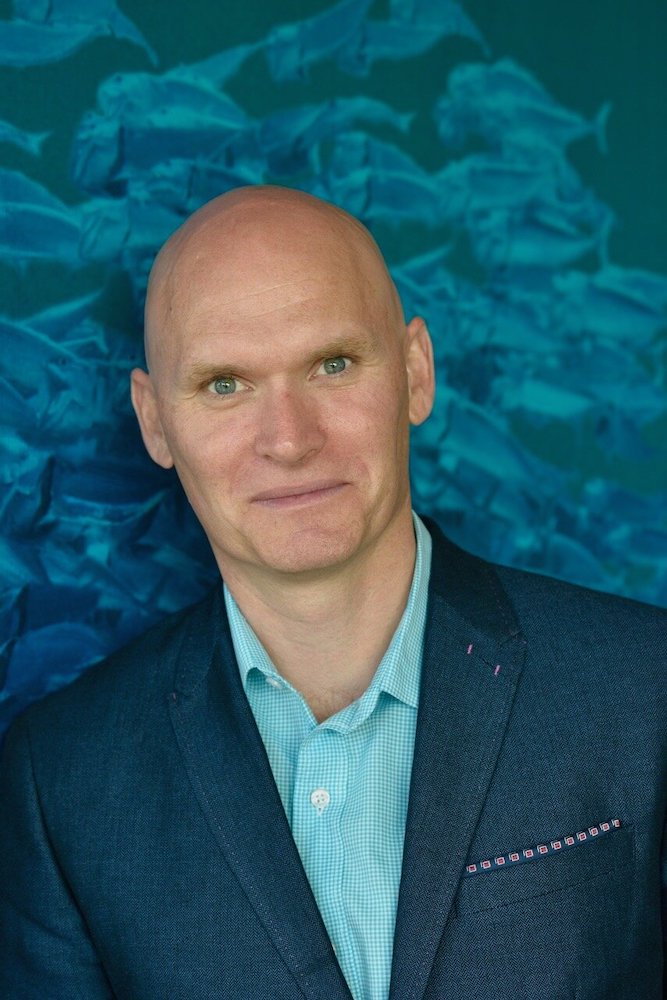The PEN Pod: The Journey to Cloud Cuckoo Land with Anthony Doerr
 Today on The PEN Pod, we spoke with Anthony Doerr, author of two short story collections, a memoir, and novels, including the Pulitzer Prize-winning novel All the Light We Cannot See. Anthony’s latest book, Cloud Cuckoo Land, is out now. Set in Constantinople in the 15th century, in a small town in present-day Idaho, and on an interstellar spaceship decades from now, Cloud Cuckoo Land is a soaring work of metafiction about children on the cusp of adulthood and reflects our interconnectedness with each other and across time. Writer and PEN America’s former Literary Awards Program Director Jane Marchant spoke with Anthony about his writing journey, the structure of Cloud Cuckoo Land, what books mean to him, and writing from a child’s perspective. Listen below for our full conversation (our interview with Anthony is up until the 30:35 mark).
Today on The PEN Pod, we spoke with Anthony Doerr, author of two short story collections, a memoir, and novels, including the Pulitzer Prize-winning novel All the Light We Cannot See. Anthony’s latest book, Cloud Cuckoo Land, is out now. Set in Constantinople in the 15th century, in a small town in present-day Idaho, and on an interstellar spaceship decades from now, Cloud Cuckoo Land is a soaring work of metafiction about children on the cusp of adulthood and reflects our interconnectedness with each other and across time. Writer and PEN America’s former Literary Awards Program Director Jane Marchant spoke with Anthony about his writing journey, the structure of Cloud Cuckoo Land, what books mean to him, and writing from a child’s perspective. Listen below for our full conversation (our interview with Anthony is up until the 30:35 mark).
On His Journey to Becoming a Writer
“My father-in-law calls it the ‘Rocking Chair Theory.’ I just had this thought, like, ‘I don’t want to be 80 and sit in my rocking chair and regret it, and regret never having tried this,’ kind of like this grand adventure you’re going to go on. Just take this risk now and do it, and try it, and see it; see if it works for you to make stuff all day long.”
On Structuring Cloud Cuckoo Land
“The architecture of the novel is pretty complicated, and there were days that despair started to creep in, like ‘I’m never going to solve this puzzle, I’ve locked myself in this labyrinth of my own construction and I’m not going to be able to find my way out.’ I’m sure many people who are listening can relate who are writers—you’ve written yourself into this place, but you’re not sure you can finish the book. The joy oscillates between despair and joy often.
“In this novel, there’s so many sieges within sieges, and books within books, and memories within minds, that often it came to me like a bulls-eye, a series of concentric circles, or maybe a series of spheres. I have the fable, maybe this tightly coiled fist at the center. . . . There’s real walls all around each of the characters, and also metaphorical walls, and in each case the story kind of interpenetrates time, and I just tried to rotate all of those concentric spheres inside of one another.
On the Power of Books
“Books, for me, have always been a way to slip out of the confines of my own boring, white, bald-man life. . . and even before that, as a kid, growing up in a family in Ohio without a bunch of money to travel, just being able to leave the confines of our own lives. Books have allowed me to do that. The library was like this place just full of portals to other worlds, and other lives, and other times. So in many ways this book Cloud Cuckoo Land is kind of a tribute to that, that books allow us to slip out of the walls—the proverbial walls or the metaphorical walls—of our own lives. And thank goodness they do, because I think it’s helped me live kind of a multiplicity of experiences, that otherwise I would be limited in some ways. I think the pandemic kind of emphasized that for a lot of us who are readers.”
On Writing from a Child’s Perspective
“I’m getting towards 50 years old, and I’m finding that I have to work a little harder to find awe in my life. Habit encrusts our eyes sometimes. . . . I don’t want to live unconsciously at all, even though that’s an impossible goal. But we’re here for such a really, incredibly, scarily, short amount of time—80 years if you’re really, really fortunate—and I just want to not sleepwalk through those moments.
“I think kids help me do that. . . . Finding characters that can help me recapture that sense of awe, that can rekindle an enthusiasm for the beauties of the world—hopefully that can transfer to your readers as well. Maybe that’s why I keep choosing young scientists as my characters now.”






